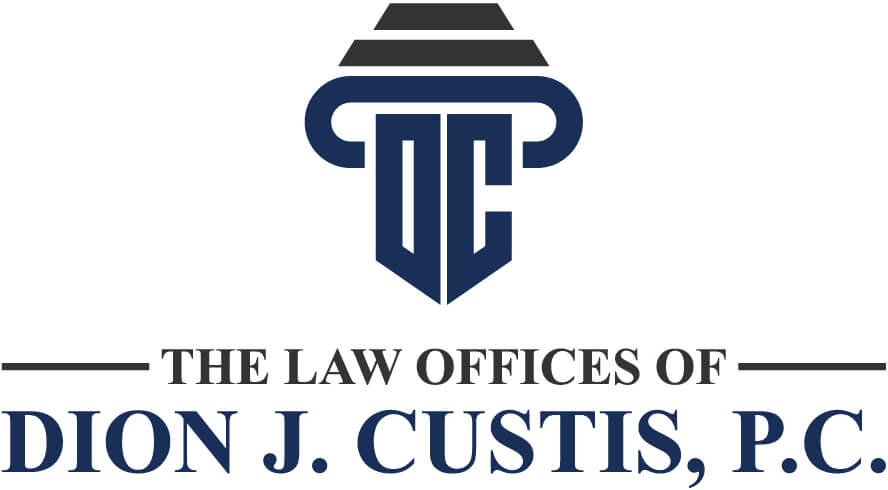How Are State Criminal Charges Different from Federal Charges?
If you’ve been charged with a crime in Colorado — or if you’re under investigation — you might hear terms like “state case” and “federal case.” At first glance, both can seem similar: you’re facing a criminal charge, the government is prosecuting you, and your future is on the line.
But there are important differences between state and federal criminal charges — and those differences can drastically impact your legal options, potential penalties, and how your case is handled.
Understanding what you’re up against is the first step toward building a powerful criminal defense in Colorado. Let’s break it down clearly so you know exactly what you’re facing — and what to do next.
State vs. Federal Criminal Charges: The Basics
At a high level, criminal charges are categorized by who is prosecuting the case and what law was allegedly broken:
- State charges are filed by the District Attorney (DA) in a Colorado state court, for violations of Colorado state law.
- Federal charges are filed by the U.S. Attorney in federal court, for violations of federal law.
Both systems can charge individuals with serious crimes. However, they operate under separate legal systems, with different rules, procedures, and consequences.
Knowing whether your case is in state or federal court will shape your entire defense strategy — and hiring an attorney with experience in criminal defense in Colorado is critical either way.
What Types of Crimes Are Charged at the State Level?
Most criminal charges are prosecuted at the state level. These include:
- DUIs and traffic offenses
- Theft, burglary, and robbery
- Assault and domestic violence
- Drug possession (small amounts)
- Criminal mischief or vandalism
- Juvenile offenses
State charges are brought under Colorado’s criminal code, and the case will be handled in county court (for misdemeanors) or district court (for felonies).
Sentences can include jail time, probation, fines, community service, or rehabilitation — depending on the nature of the offense and your criminal history.
A strong criminal defense in Colorado can often result in reduced charges, diversion programs, or even dismissals at the state level.
What Types of Crimes Are Charged at the Federal Level?
Federal charges involve violations of U.S. law, and they typically involve more complex, serious, or wide-reaching offenses. Examples include:
- Large-scale drug trafficking
- White-collar crimes (fraud, embezzlement, tax evasion)
- Federal gun law violations
- Cybercrimes or internet exploitation
- Immigration offenses
- Organized crime and racketeering
- Crimes that cross state lines (interstate criminal activity)
- Crimes on federal property (e.g., national parks, military bases)
Federal cases are prosecuted by Assistant U.S. Attorneys and heard in United States District Courts. The sentences are often harsher, and the system moves quickly and with far fewer plea opportunities.
Federal cases require deep legal knowledge and extensive preparation. While many Colorado defense attorneys handle state cases, not all are equipped for federal court — so choosing someone with experience in both is key to a strong criminal defense in Colorado.
Key Differences Between State and Federal Criminal Cases

Your legal exposure, defense options, and even the pace of your case can be very different depending on the jurisdiction — which is why you need the right guidance from a seasoned criminal defense in Colorado.
Can a Crime Be Charged at Both the State and Federal Levels?
Yes. Some offenses violate both state and federal law and can be charged by both jurisdictions simultaneously. This is known as dual sovereignty, and it’s allowed under U.S. law.
For example:
- A large-scale drug operation involving multiple states could trigger both state-level charges (for possession or distribution in Colorado) and federal charges (for interstate trafficking).
- An assault that occurs on federal land (like a national park) may also violate Colorado assault laws.
In these situations, coordination between federal and state prosecutors often determines how the case proceeds — but you could face double the penalties without strong legal advocacy.
Real-World Scenario: A State Case Becomes Federal
A man in Colorado was arrested for manufacturing fake prescription drugs. Initially, local police charged him with possession and distribution under state law. But when the investigation revealed that the pills were being shipped across state lines, the DEA got involved — and federal charges were filed.
His case moved from state court to federal court, and the potential penalties increased dramatically.
This is why hiring a defense attorney who understands the differences between state and federal criminal systems is critical from the very start of your criminal defense in Colorado.
How Investigations Differ
State cases are typically investigated by local agencies — police departments, sheriff’s offices, or the Colorado Bureau of Investigation (CBI). These investigations are often quicker, and you may learn about the charges sooner.
Federal cases, however, are often investigated by federal agencies — FBI, DEA, ATF, ICE, or Homeland Security — and they tend to build slowly and quietly over time. By the time you find out you’re a target, the federal government may already have substantial evidence against you.
That’s why, if you hear you’re under investigation or being contacted by federal agents, the best move is to contact a lawyer immediately. Early intervention in a criminal defense in Colorado can sometimes stop federal charges from being filed at all.
Penalties in State vs. Federal Cases
State sentencing in Colorado varies based on the charge level (misdemeanor vs. felony), criminal history, and judicial discretion. Colorado judges often consider rehabilitation, and there are more diversion programs and sentencing alternatives available at the state level.
Federal sentencing, by contrast, follows strict federal guidelines — and often carries mandatory minimum sentences. Judges have far less discretion, especially in drug and firearm cases. Prison time is much more likely, and parole is not available in the federal system (only supervised release after incarceration).
Put simply: federal sentences are usually longer, stricter, and harder to negotiate. That’s why federal defendants need top-tier legal defense from attorneys experienced in high-stakes criminal defense in Colorado.
Should You Hire a Different Lawyer for a Federal Case?
Not necessarily — but you should make sure your lawyer is licensed to practice in federal court and has experience handling federal criminal defense.
Ask questions like:
- How many federal cases have you handled?
- Are you familiar with the U.S. Sentencing Guidelines?
- Have you appeared in U.S. District Court in Colorado?
- Can you negotiate with federal prosecutors and manage complex discovery?
A strong criminal defense in Colorado covers both state and federal cases — but the skills and experience needed in federal court are specific. Don’t assume every defense attorney is prepared for that level of representation.
What to Do If You’re Facing State or Federal Charges
No matter what type of charge you’re facing, the most important thing you can do is take action fast:
- Do not speak to investigators without a lawyer
- Do not try to handle the case yourself
- Do contact a qualified criminal defense attorney who understands the court system where your case is being filed
From plea negotiations to trial preparation, the right legal strategy can reduce your charges, limit your exposure, or even result in dismissal.
What to Do Next
Charged with a crime in Colorado? Unsure if it’s state or federal? Let’s talk.
- Call now to schedule a free consultation with an experienced criminal defense attorney in Colorado
- Get clear answers about your charges, your risks, and your next steps
- We handle both state and federal cases — and we fight for your future
Meet Dion Custis: A Criminal Defense Lawyer in Colorado Who Knows How to Win
For over 30 years, Dion J. Custis has fought for people just like you — individuals facing criminal charges and unsure of what comes next. Licensed in both Colorado and Wyoming, he’s handled thousands of cases in state and federal courtrooms, including:
- Felony assault charges
- Self-defense claims
- Allegations involving police officers
- Complex, high-stakes trial cases.
You don’t need to know the law. You need a criminal defense lawyer who knows how to use the law to protect you.

What our Client Says about Us
Start Building Your Defense Now — While You Still Have Time
You’ve got one shot to protect your name, your job, your record, and your freedom. Make it count. Don’t Face the System Alone — Schedule a Free Criminal Case Review Today.
